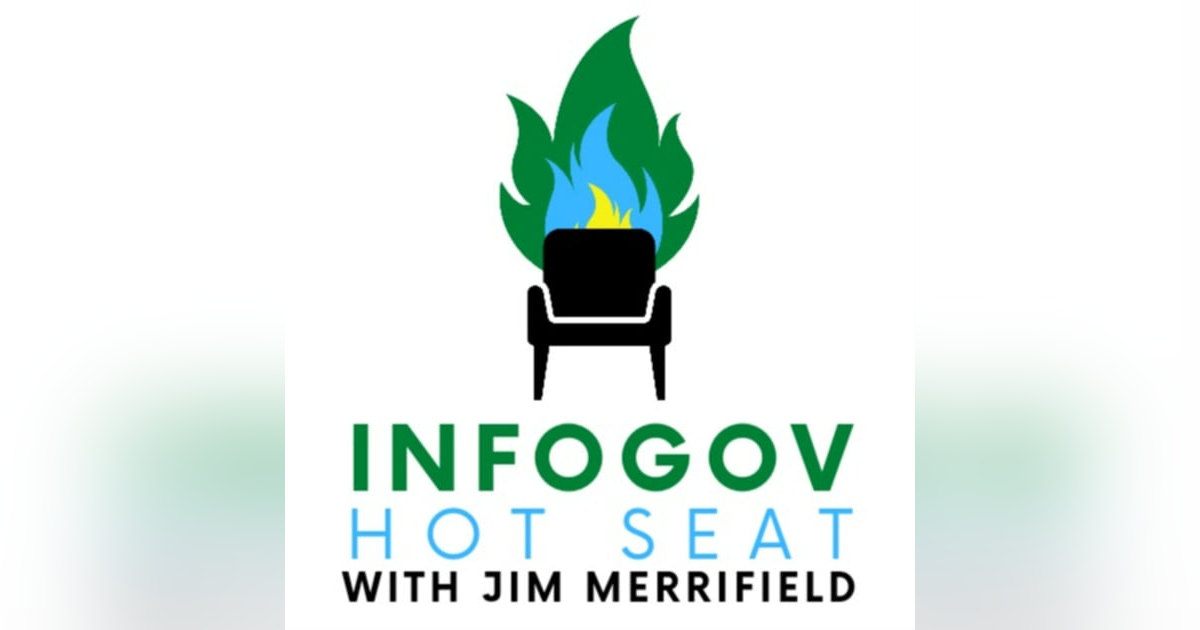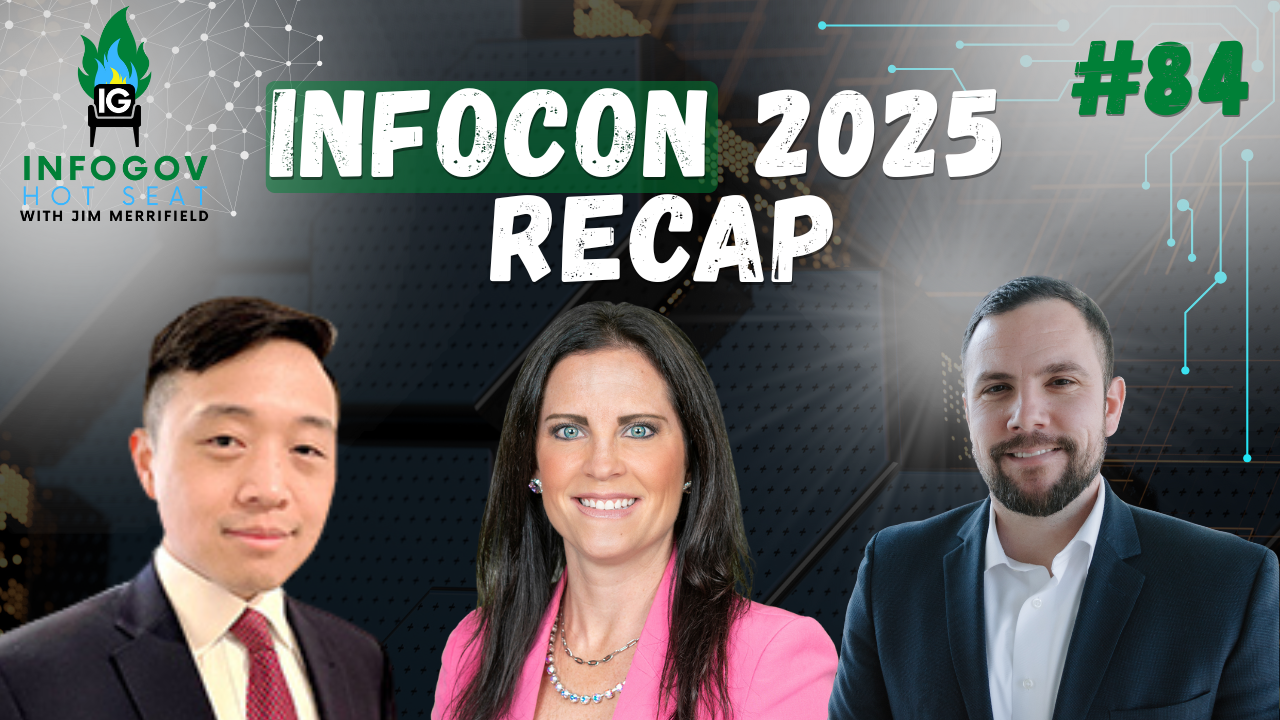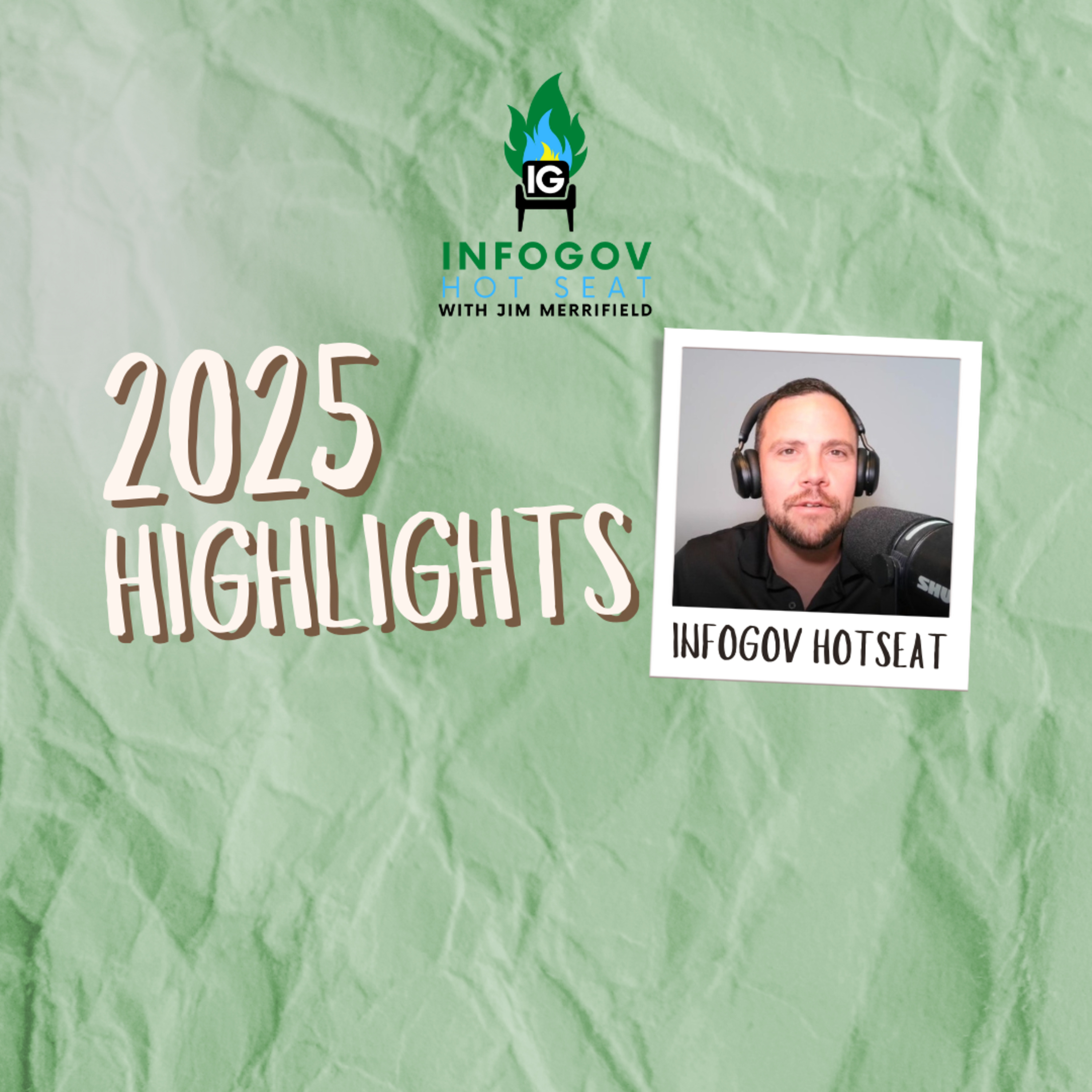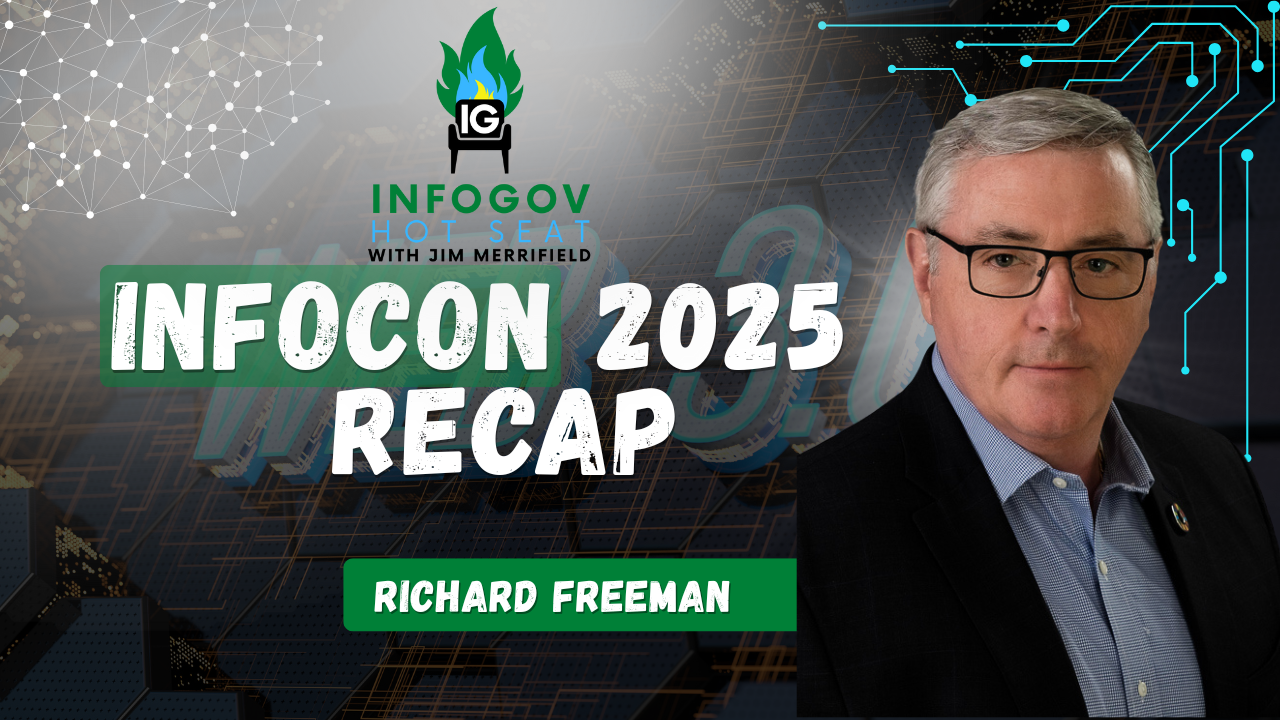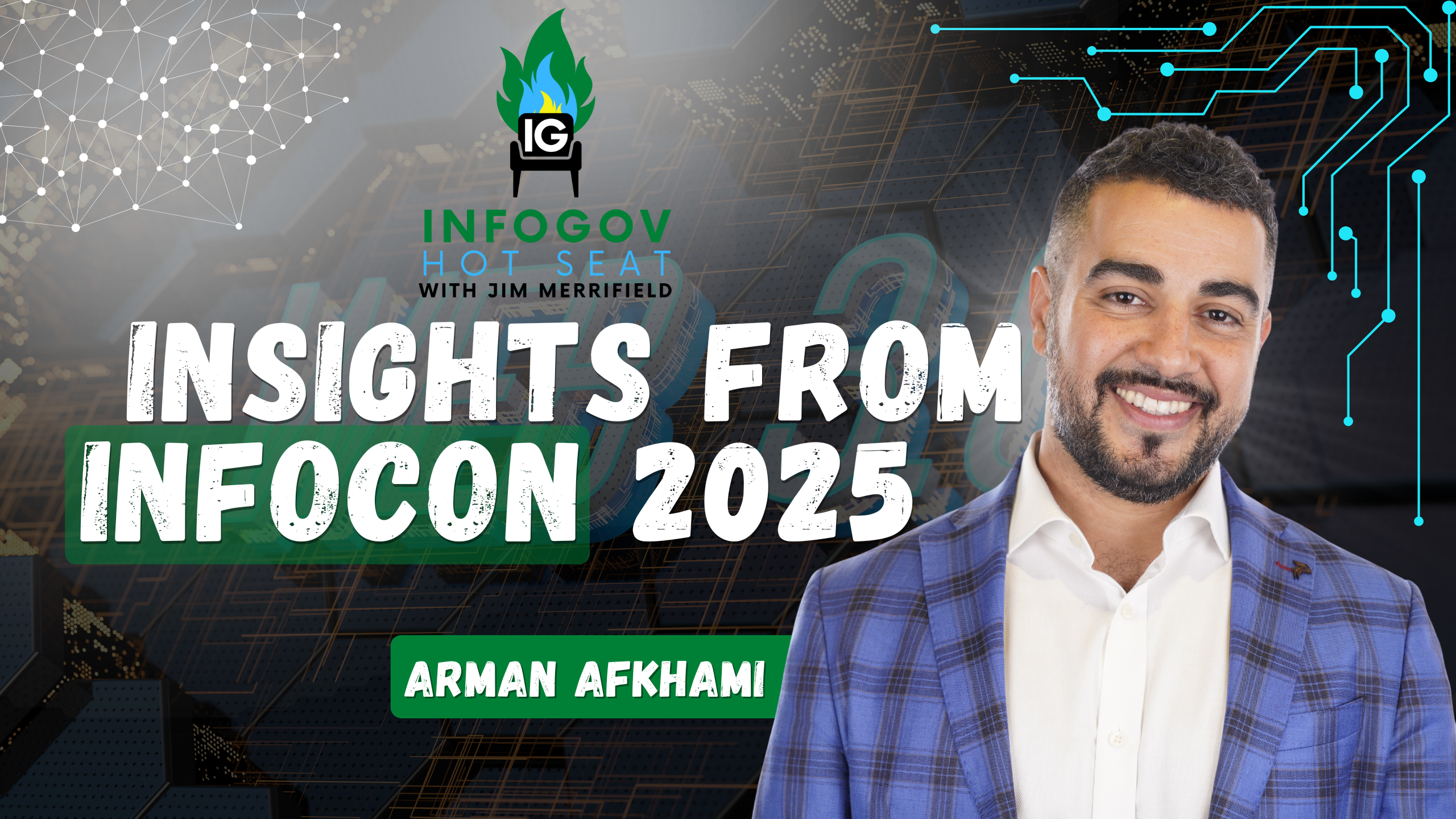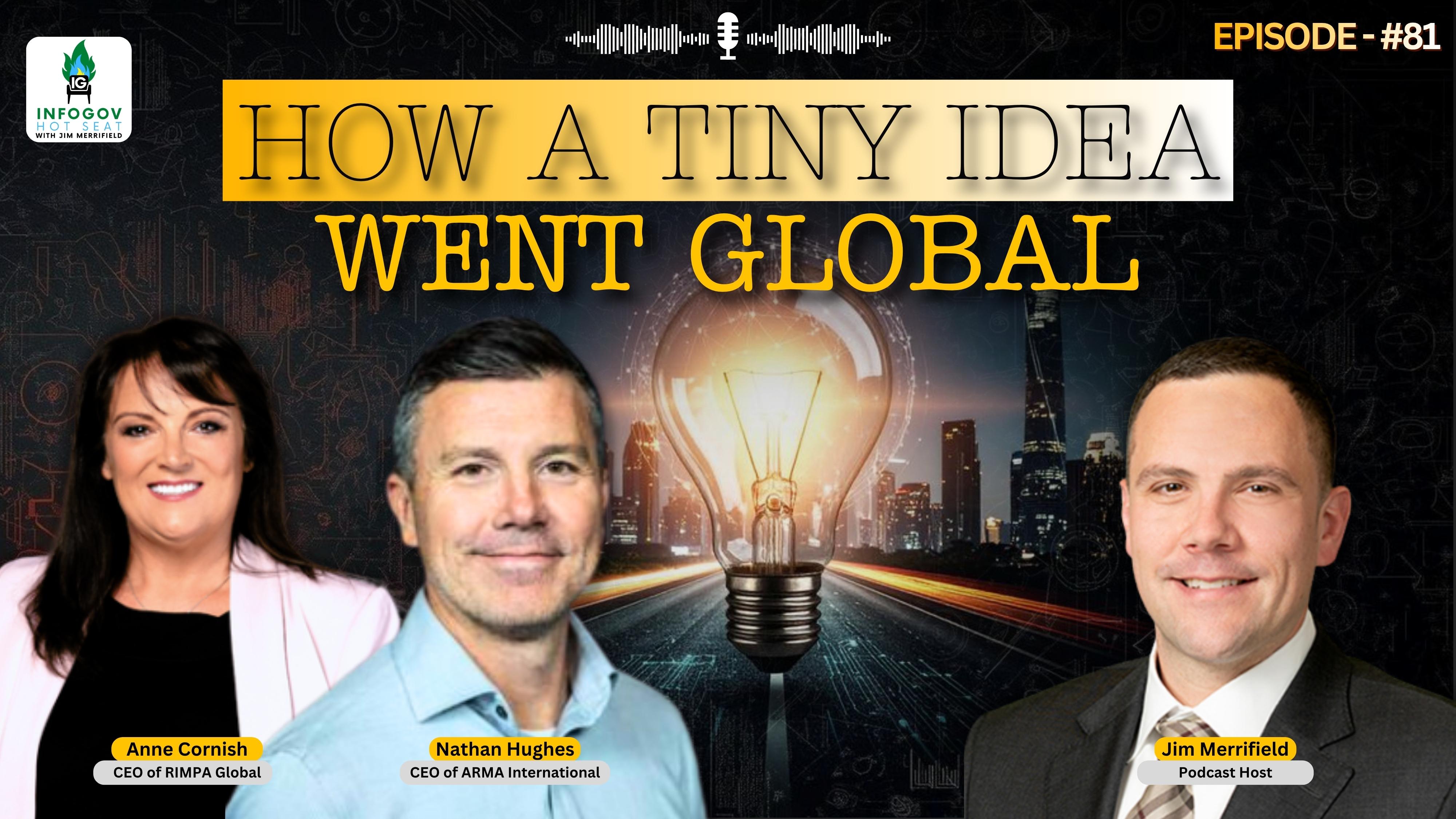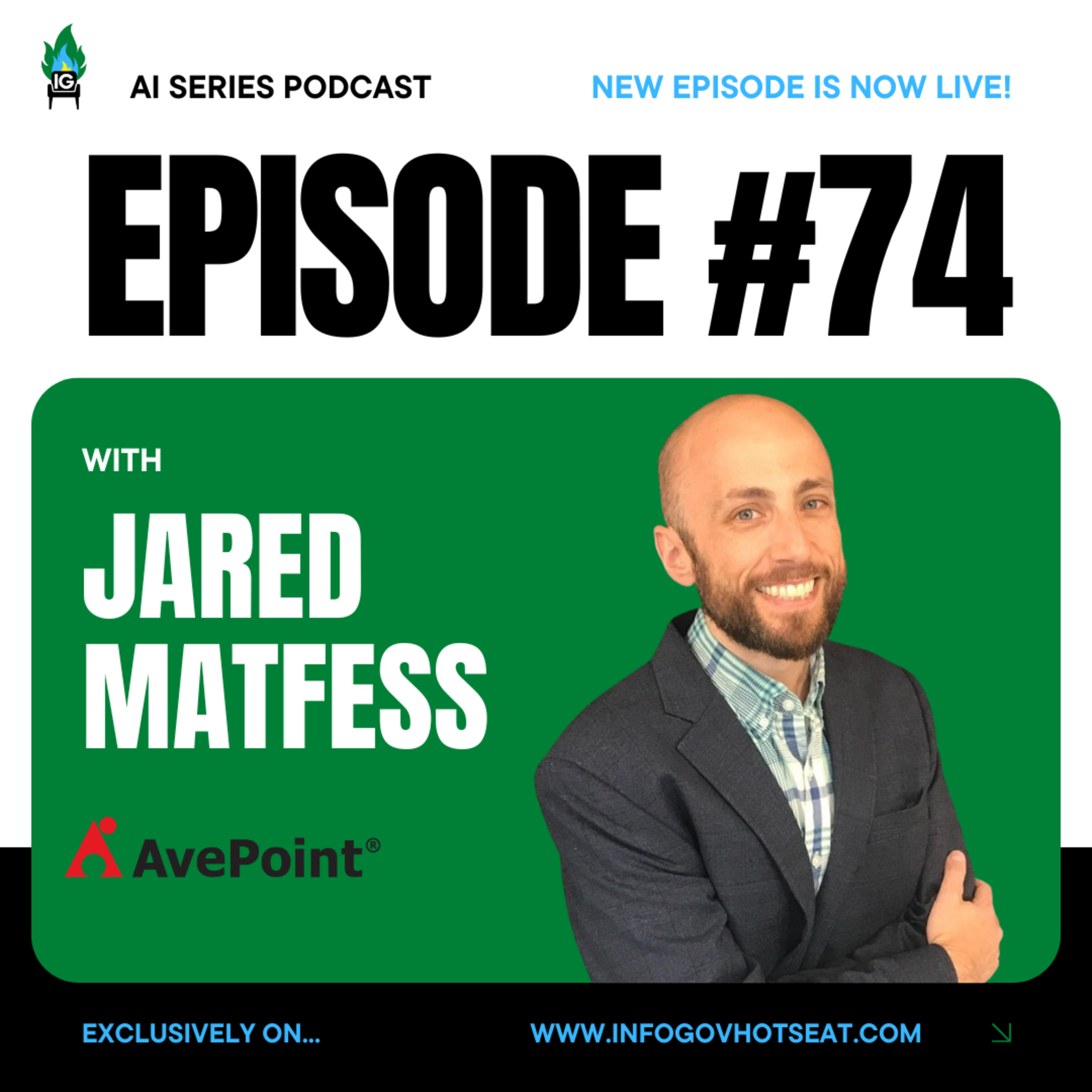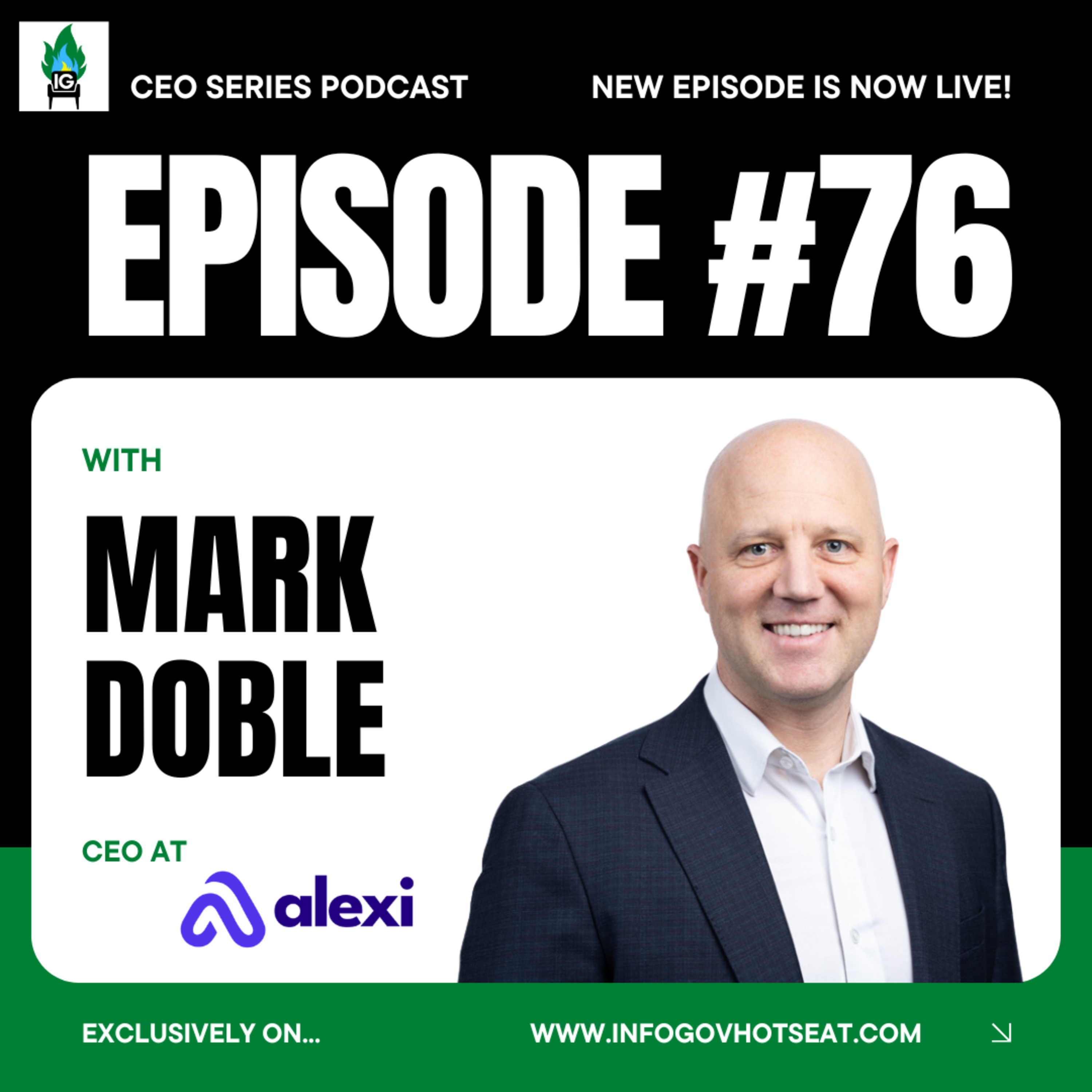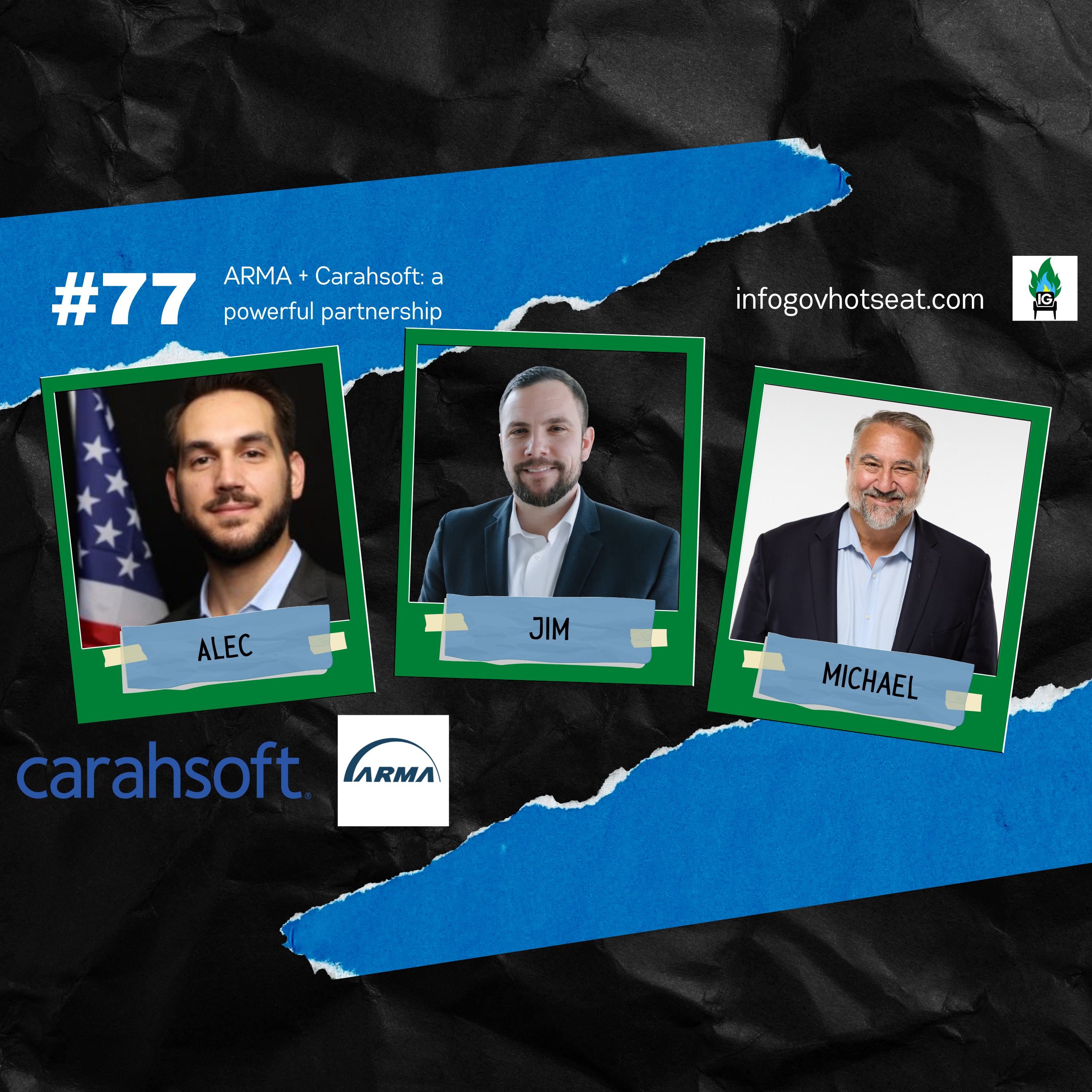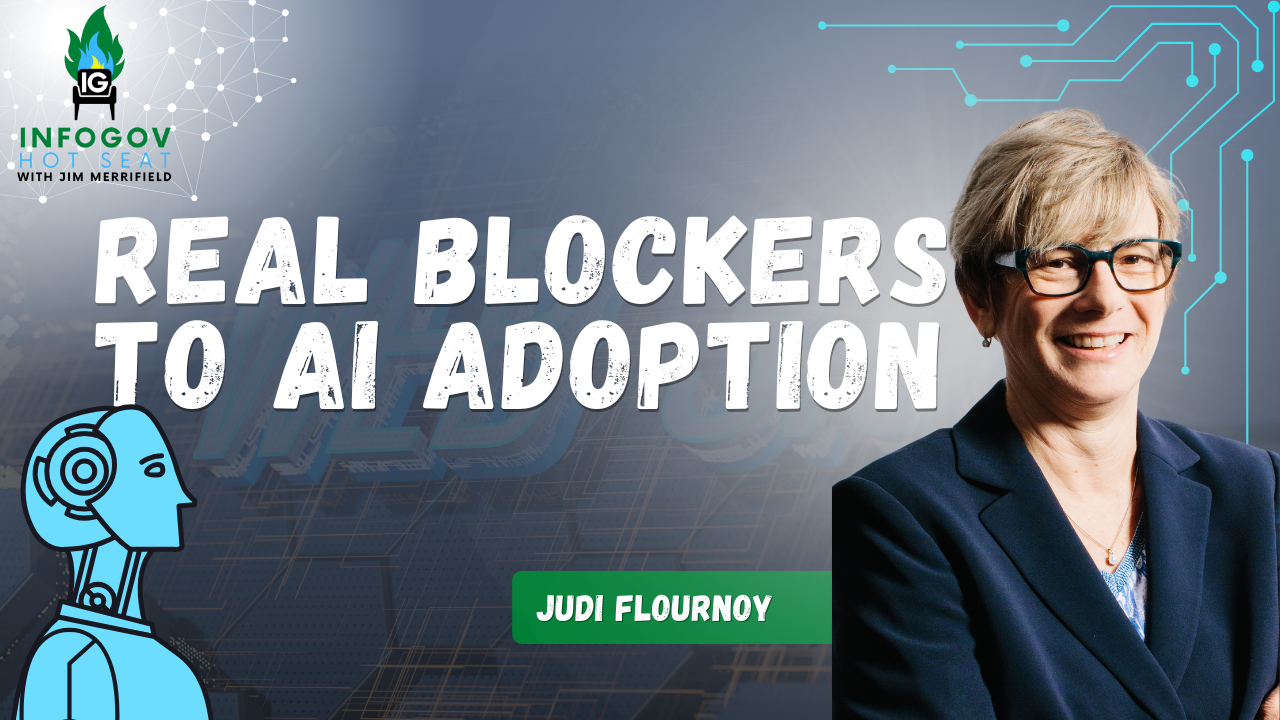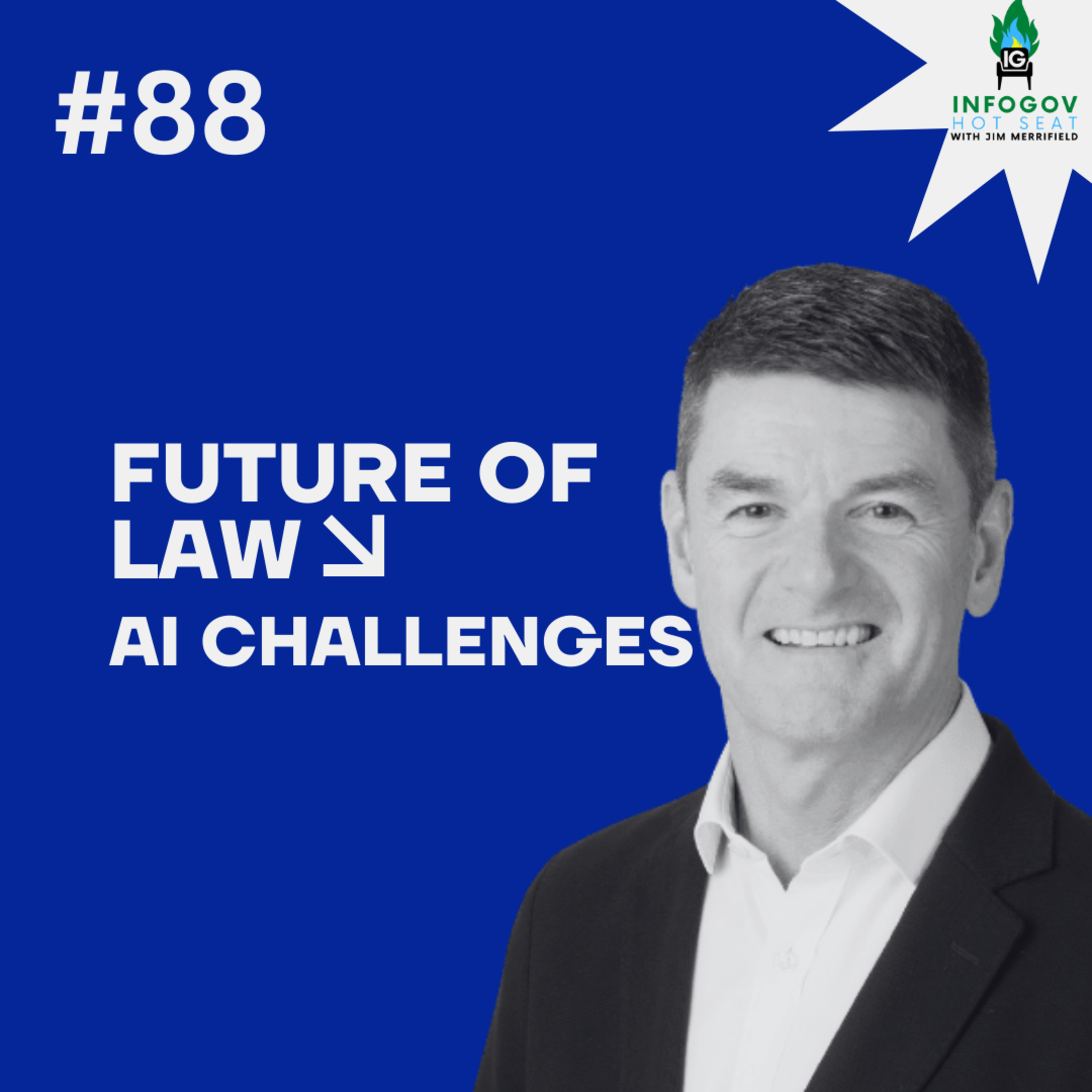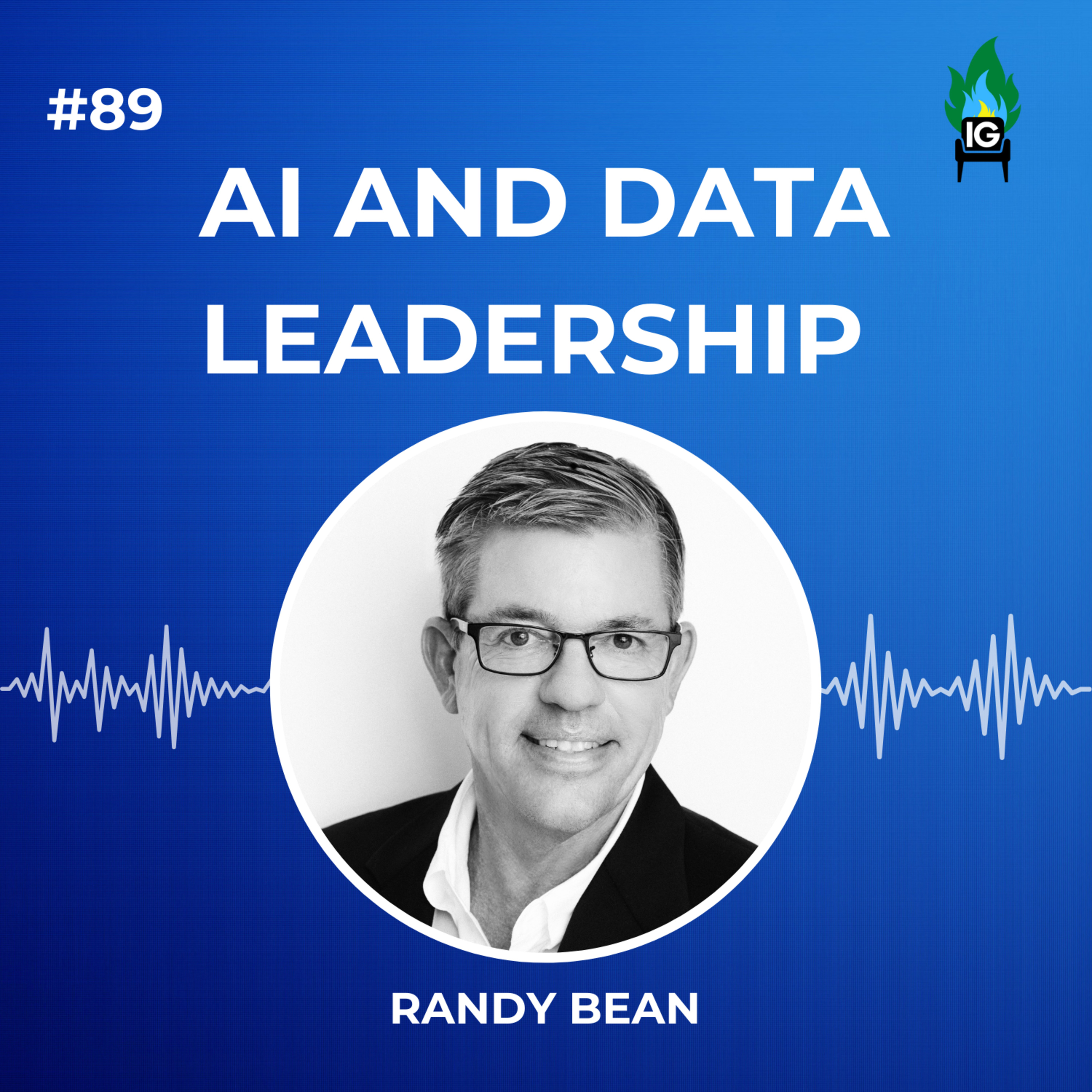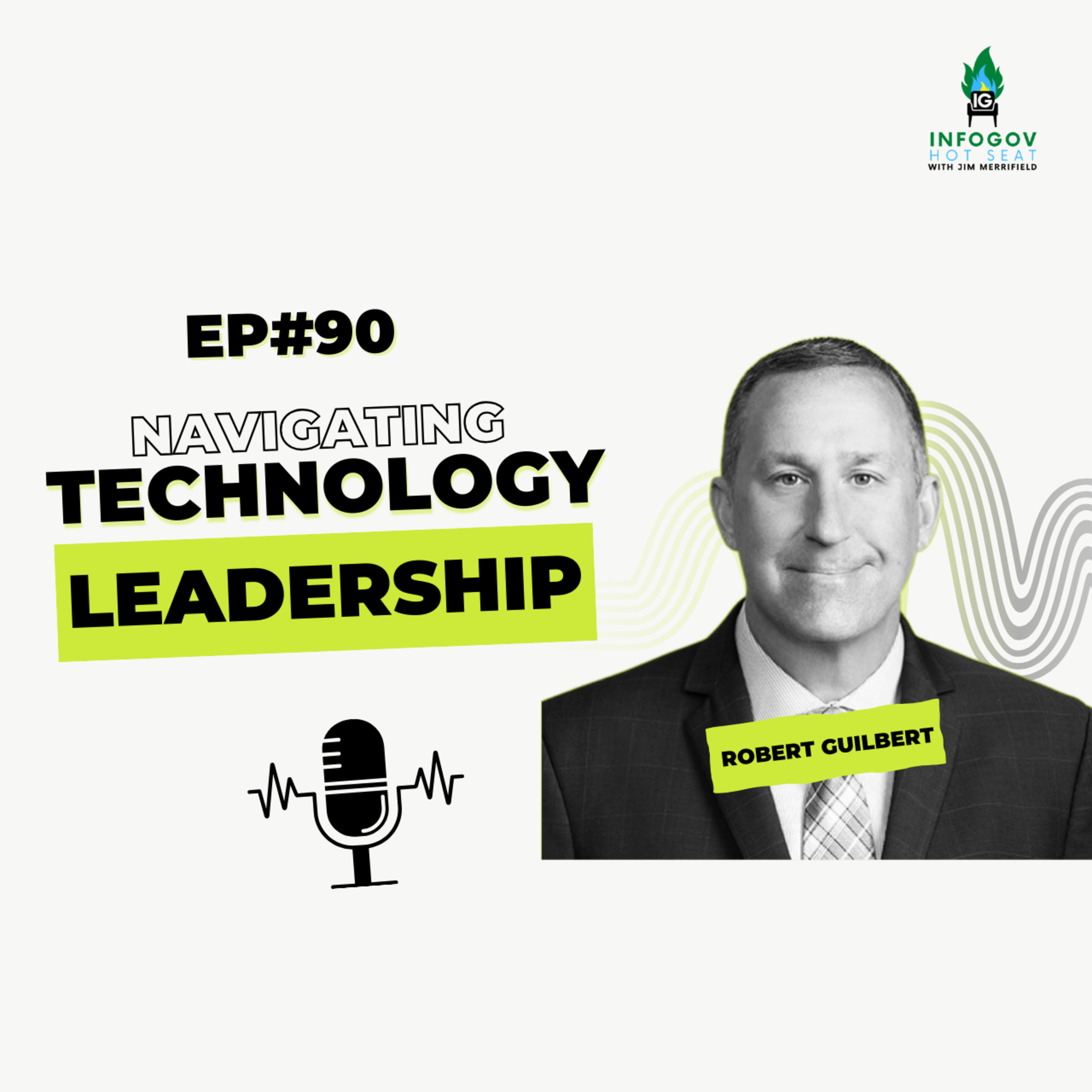The Future of Records Management: AI, Partnerships, and Integrated Data Strategies
In this episode of InfoGov Hot Seat, host Jim Merrifield discusses the evolving landscape of data and records management with guests Alec Wyhs and Michael Ratigan. They explore the importance of partnerships in the industry, the integration of electronic records management with broader data management policies, and the upcoming RIM Spotlight series aimed at driving meaningful change. The conversation also touches on future trends in records management, emphasizing the need for integrated solutions and the role of AI in enhancing operational efficiency.
Jim Merrifield (00:00.926)
Well, hello and welcome to the InfoGov Hot Seat, the podcast where we explore the fast changing landscape of data, records, and information management. I'm your host, Jim Merrifield, and today we have an exciting episode lined up that combines innovation, collaboration, and industry insight. Have you ever wondered how industry partnerships evolve to meet modern challenges? Are you curious about electronic records management or ERM?
in transforming data management strategies? Well, we've got those answers. Plus, we'll spotlight an initiative that's stirring up excitement in records management, in the records management space, and even take a look towards the future of this market. Now, to guide us through these topics, I'm thrilled to welcome not just one, but two special guests. Joining me are Alec Wyhs from Carahsoft and Michael Ratigan.
from data evolution, both of whom have been instrumental in driving impactful strategies in the space. Welcome Alec and Michael.
Michael Ratigan (01:08.216)
Thank you.
Alec Wyhs (01:08.637)
Appreciate it, Jim
Jim Merrifield (01:10.226)
Yeah, it's great to have you both on the hot seat. I know Alec, you've been a guest, but Mike, why don't you introduce yourself? Tell us who you are, maybe where you're from, what your fun fact is, so the audience can get to know you a little better.
Michael Ratigan (01:25.35)
I've been in the records management document, digitization space for probably 35 years. I don't date myself, but my Moses look kind of gives that's kind of a giveaway. but, live in the Annapolis, Maryland area. and I've been just spent a lot of time over, over my career, just being, being a consultant to various organizations and federal agencies.
And trying to help them with strategies to move from a fully paper world to a fully digital world. And that's led to a lot of my discussions with Carahsoft and Arma. But a lot of it's just to try to be a catalyst for change. There's a lot of siloed companies in this space that have been out there for many years. And Arma has been great in kind of providing a platform to say, let's re-engage government and let's do this right.
working with Alec at Carahsoft about how do we do this right? How do we put together partnerships? So now fun fact, let's see a fun fact. love golf, but I'm not that good at it. but I think a fun fact for me to be, I'm just a big family guy. I prefer to have, as many family and friends around me as all the time and just make it a kind of a fun activity. Cause the way the world changes now, you don't know where anybody's going to be next week. So when you're with people, just enjoy them and have a lot of fun.
Jim Merrifield (02:52.796)
Love it. Family comes first there, Mike. You know, awesome. Well, thanks for being here. Alec, I know you're returning guest, but why don't you give yourself an introduction, what you've been doing lately, and maybe even a new fun fact.
Alec Wyhs (03:08.497)
so my name is Alec Wyhs as you mentioned, and, I'm a sales director at Carahsoft. I also sit as the program executive on the records and information management technology vertical at Carahsoft as well. So, it's been an interesting year in, in government as I'm sure everyone is, you know, experiencing to some extent. but you know, we, we've managed to keep our head above water and, and we're continuing to press, press on the gas and.
moving things forward. So it's, been a really good year, you know, for, for the teams that I actually run and, also for the vertical, we've made some pretty significant strides. So that's, that's pretty exciting. let's see, fun fact, what's new about me since last time? Well, recently adopted a puppy. So that's been absorbing pretty much all of my time. And, recently entered, I guess you could call it it's velociraptor face and everything in my house says,
bite marks in it and including a few of my own limbs. that's what's new with me. You know, I did get married. I did get married. Yeah. Yeah. That was exciting. German Shepherd. Yeah. Yes, it does. Yeah. I, this is my second one. So, a little better equipped this time, but,
Michael Ratigan (04:12.758)
And you're married. And you're married.
shout out to. This is where you stop important.
Jim Merrifield (04:17.256)
Nice.
Nice, congratulations. Congrats. What kind of puppy? Okay, that explains it. Okay.
Alec Wyhs (04:36.411)
You're never fully prepared for the puppy phase. I'll just say that.
Jim Merrifield (04:40.134)
No, for sure. Well, congrats on getting married, new puppy. It's a pleasure to have both of here. So let's start at the root of this collaboration, a key theme throughout today's discussion around the partnership between Arma and Carahsoft, right? It's a fascinating one. I know it's developed over time. Can you tell us how this relationship began and how it's evolved over time? Maybe Alec, you could take that first question and then Mike, feel free to add.
Alec Wyhs (05:10.405)
Yeah, yeah, yeah. Actually, funny enough, it was Mike who sort of initiated this partnership. Mike and I had worked together for probably seven, eight years on and off. We met way back in the day doing some support around a CMS contract with Gimmal So Mike came to us and...
you had a conversation with my CEO and, and, know, kind of explained, Hey, we, you know, I think I can build something, something pretty big, right. Out of this records management industry vertical, and, information governance, course. and so he leveraged his contacts over an ARMA and, was able to kind of get us aligned with ARMA as the very first knowledge organization that we partnered with. you know, we've been working hard together. I talked to Mike probably.
least every other day, I'd say. And we've been really moving the needle from an industry perspective in the records and information management space as a result.
Michael Ratigan (06:15.884)
And then to add to that, think ARMA used to be very big in federal. And I've been in the industry a long time, so the ARMA conventions and things were where people went to. But I think the focus for a while moved to more from legal and educational, a lot of the other fields. So I met with Nate and Jennifer and said, I think we need to take a renewed look at this because the landscape is changing.
Jim Merrifield (06:15.902)
You sure have. Go ahead, Mike.
Michael Ratigan (06:43.554)
there needs to be a better community around federal because most of the companies in this space are small. And many of them were already working with Carahsoft. So Carahsoft obviously has a massive federal presence and a very good strong state and local presence. ARMA has a phenomenal state and local presence and legal net. But the federal was still emerging. So I said, when we talk about putting these things together and let's leverage the power and the scalability of Carahsoft.
with the incredible in-depth knowledge and educational aspects of ARMA. So Nate and the team were like, this makes a lot of sense. Let's have a conversation. And most people don't realize how large Carahsoft is in breadth. And many of these companies existed in different verticals across. I think they have 26 or 27 verticals at Carahsoft.
but they weren't together. when we started talking with Alec and he's like, well, you know, this makes a lot of sense. Let's combine all of them and get the messaging right. And that's led to a variety of other things we'll talk about. But the relationship has been great. Arma has been phenomenal in providing content and support. Carahsoft team has been great. we put together something that I think all agree is pretty powerful, but it's the sense of a single community where
all these states and federal agencies can leverage all the contract vehicles and the knowledge base of Carahsoft to just achieve their mission. At the end of the day, that's all they want. Have one kind of hand to shake. If you need five or six different solutions, put them all together and then just solve the problem. Because most agencies at the federal, state, and local are doing it with less people.
the more we can streamline that procurement and the delivery of that, the better. So I've been thrilled with everything to date and look forward to the continued relationship.
Jim Merrifield (08:39.538)
Yeah, it's amazing to see how collaboration can really amplify impact, right, with these partnerships. So now I want to zoom out a bit. Now, ERM, it's evolving quickly, as you both mentioned. So here's a question maybe for Mike to begin with. How are you seeing it integrate more with broader data management policies?
Michael Ratigan (09:01.742)
Boy, that's Alec and I could over three or four hours talk about that one forever. What I've seen in the market is that records management traditionally has been a siloed enterprise. So NARA has done a great job at the federal level of telling people that records are this unique data set and we're going to stick it off to the side. And data is another aspect of that. Well, with the advent of artificial intelligence, it's changed the game.
Alec Wyhs (09:04.636)
Hahaha
Michael Ratigan (09:32.374)
So records can no longer be seen as its own independent entity and then data as its own independent entity. Records are nothing more than a subset of data. So what I see happening in the marketplace, and I think it's through the efforts of ARMA, through the efforts of Carahsoft and a number of other organizations like Nagara and some other ones that are out there, is talking about how all of these things are coming together.
records management companies are becoming data management companies and content management companies because all that information coming in, especially with GenAI and all the different AI technologies, you almost have to assume everything coming into our organization is a record. And then by putting context to it and metadata to it and file schedules, now we can determine whether we keep it. But more importantly, if I have to do as a company more with less,
Alec Wyhs (10:03.708)
you
Michael Ratigan (10:26.904)
The faster I can get that information into a central repository, assign metadata, and then make it available to all the leadership in the company in a data lake and just pull information and access. Now that organization becomes more efficient. So in the past, I think people looked at the records aspect is, yeah, we'll deal with that at some point, but now I got to do a data and cyber now. But I think people now are saying it is all one entity. And so.
That's where Carahsoft and Arma working together is good because Arma can provide the information base to educate people on why this is different. And Carahsoft can provide the kind of the horsepower to get all these things in place and mechanisms, software, system integrators to make it all happen.
Alec Wyhs (11:12.795)
Yeah. And I would just add to that, you know, Mike did a great job covering what we're seeing on that, on the private sector side and with a lot of the companies we work with. But we're also seeing in the government, right? I mean, a lot of these federal agencies have taken it upon themselves to migrate their records officers and their records departments under the CDO, right? That's, you know, away from CIOs, which traditionally was where they were sort of nestled. And, know,
Jim Merrifield (11:13.02)
sure.
Alec Wyhs (11:42.389)
I think that in and of itself is a signal from the government that they're starting to move in that direction. They are starting to understand that this is a much larger conversation than just, what do we do with our records? And as a result, I think there's also an opportunity for a lot of these private sector companies and other OEMs who are looking to find ways to expand their footprint.
Well, in the past 10 years, right, it's been big data, this big data, that right. You got tableaus clicks. got all these other big analytics analytics companies that came out in the 2010s. you you look at like a talent, for instance, who can do that data prep and that ETL on the front end. That was what everything was focused on for almost a decade leading up to where we are now. and, and through that, I think they're starting to see that.
Hey, there's a major value in including records in this conversation. especially with a catalyst like AI coming about, right? Because AI has that capacity and that bandwidth that is just so much larger than any single person using some single dashboarding tools capable of, right? So now we have the means to leverage a lot of that information that is
sort of nestled in the record side of things, which is a huge value at the end of the day.
Michael Ratigan (13:14.606)
And then the followup on that is federal agencies have, it's called an agency governing body. And that falls under traditionally the CDO or it could be the CIO. And that is supposed to be comprised of the chief information officer, chief data officer, chief architect, CISO security officer. But it also is supposed to include the records officer.
And we all know that anything happens at the federal level eventually migrates down to state and local and eventually into kind of the private sector. So if NARA and the federal agencies and OMB are saying, you need to have the records as part of any federal data strategy at a federal level, we know that's going to migrate down. to reiterate what Alec just said, all this just kind of makes sense that it's just part of a broader data strategy.
Jim Merrifield (14:06.482)
Yeah, it's a huge transformation, right? It's kind of like the snowball effect and it sounds like ERM or our industry really is expanding in a huge way. And I think it starts right with the federal, on the federal level. Now, speaking of creating value, I wanna talk a little bit about that RIM spotlight series that we have coming up or that you two have coming up in combination with or a partnership with ARMA.
rather, what inspired this initiative and what kind of impact are you planning to see with this series?
Alec Wyhs (14:41.691)
Yeah, I can take a first crack at that one. So it was inspired by, frankly, an initiative that was born within Carahsoft right? With a company that represents over thousand different software manufacturers, we're sort of uniquely positioned to take to market solutions as opposed to individual products. And we're starting to see from the government that,
You know, we're looking to reduce technological complexity. We're looking to streamline, you know, trim the fat, become more efficient. And all that to say there's a bit of a, of a push, I would say from the government to put the onus more on private sector to provide integrated solutions that can speak to each other, right. You natively or straight out of the box. And, and, and
take some of that responsibility off the government to go out and source four or five different products, have to expended exorbitant amounts of money, you know, on integration services or an SI who put together sometimes a really great product, but other times it's sort of Frankenstein its monster and the limbs don't, you know, work in tandem. So, you know, we're seeing more of that coming from the government and we started haven an initiative called Better Together Stories internally.
And, and that's really where this spawned from the whole concept is that, you know, we're not going to be taking a lot of point product based, you know, marketing approaches on this webinar series. The goal is let's get two or three vendors together and have them tell a story about how they can solve for a specific requirement or pain point that the government's experience experiencing, excuse me.
in an end-to-end sort of solution-based fashion, as opposed to, again, just an individual product that only solves for a third or a quarter of the actual project. So Mike, I don't know if you got anything to add to that, but that's really where we saw it spawning from.
Michael Ratigan (16:51.342)
Yeah. And I think we, we had the federal summit, you know, ARMA Carahsoft did a federal summit back in February to relaunch this. And then when Alec kind of brought this up, we said, let's just have this discussion. And ironically, we put the first few together. We've done two with a third one coming up next week. But since that time, we've now locked in the entire schedule for the rest of the year, because now the vendors are going, wait a second, how do I get in on this? And
It gives us the ability to go back and say, okay, it's not just a vendor presentation on why your software is so good. Let's talk about solutions, get partners involved, get your state and local, your federal agency partners. And let's talk about providing value. It also raises the awareness of what ARMA is trying to do and provide education. It's building the brand for ARMA and Carahsoft in this records management space. And the feedback has been nothing short of tremendous. And anything to me that brings
attention in a good way to what we're trying to do just builds brand awareness and helps the overall industry and the community. And I think we've done a good job so far. We still have a lot of work to do, but I think we've done a good job so far.
Jim Merrifield (18:01.534)
No, it's excellent. I mean, it sounds like it's not just sparking dialogue, but also driving meaningful change. It's almost like you're putting these solution providers or vendors on a hot seat, you know, and asking them to tell a story, right? Not just a, you know, a demo. You're actually, it's almost like a case study type story, storyboards. That's awesome. So here's the million dollar question. What's next? Where do you see this market heading in the next few years? Who wants to take that
Alec Wyhs (18:13.585)
Good.
Jim Merrifield (18:31.498)
question first.
Michael Ratigan (18:33.942)
Alec, you want to go?
Alec Wyhs (18:36.325)
take this one. I took the last one first. I'll fill in the colors and context.
Michael Ratigan (18:40.218)
I think what I've seen from the marketplace is again, say 10 years ago, you're having a records management discussion. It would be a departmental deployment for a very specific purchase. and very siloed. I think we fast forward to, to a few years ago. Now we're starting to look at enterprise discussions of records as it merges into the data strategy.
But I think the future of this is going to be records are going to be an integrated solution to the broader data strategy. And again, this is why the Carahsofts of the world makes sense. So for example, if USDA is going to look at a broad IT strategy, they're going to say, okay, well, who's going to manage the records and the data portion of this? This is what we need to have happen. So broader IDIQs and RFPs saying, here's what we need.
And records has to be an integrated component of a 5 million, 10 million, 50 million, a hundred million dollar solution. Um, where all these vendors that we're talking about are going to be integrated. Um, they're going to be working with larger system integrators, um, to deliver a total solution. So, and the more those records companies leverage AI and all the new technology stacks to get as much information out of that data as possible, and then provide it up the chain.
to those service offering. Microsoft has a microservices layer that has it, Amazon has it, Google has it. But if you can imagine, if you could take 100 million records that are paper or unstructured, add the structure, pull all the important content out of that on a daily basis or second by second, and provide that up the chain to everybody making a decision, that it's gonna drive incredible innovation in the government, state and local and private sector.
But I think more importantly, it's going to help decision makers make those decisions quickly and with the most accurate information. So the short answer is it's going to be a vital integrated part of a broader enterprise IT strategy and data strategy.
Alec Wyhs (20:52.305)
Yeah, and I think like now that one on the head, I don't really even have too much to add to be honest, but I will say that on the government side, that aligns with exactly what we're currently seeing, right? This administration, they're looking for increased efficient operational efficiency. They're looking for places where they can streamline and even cut costs, right? We've been seeing a big initiative where, know, government agencies have been kind of of showing up and saying, hey, what sort of...
unique offerings or deals are you able to offer on what we're currently doing and how can we work with potentially some of your partners who you already have integrations with to make ourselves more efficient. Right. So I think it goes you know everything Mike said was nail in the head and I think it goes hand in hand with what the government's looking for.
Jim Merrifield (21:41.298)
Yeah, I mean, it's a fascinating vision, right? Appear into the future. And it makes a lot of sense given where all the technology and priorities are headed. So again, thank you both for sharing those thought-provoking insights. Appear into your crystal ball, if you were, and if you will. And before we wrap up today, is there one key takeaway you'd like to share with the audience?
Alec Wyhs (21:50.236)
Mm-hmm.
Jim Merrifield (22:06.184)
to remember maybe Alec will ask you that question first since Mike went first last time.
Alec Wyhs (22:11.112)
Yeah, yeah. Um, I mean, records are data, right? That that that's probably the biggest takeaway I would like people to, you know, to take from this is, um, it's all the same conversation that we're having, right? Just because they have different names doesn't mean that it's really all that different. It is a much broader discussion that I think we need to start engaging in. And the sooner we can do that, the more effective and efficient we are going to be at.
managing not only our records, but also our data and our information and how it's being used when it comes to things like AI. Because at the end of the day, your AI is only going to be as good as the data, information and records that you expose it to. So the cleaner we are, the more managed we are around those types of things, the larger data discussion as a whole, the more effective we're going to be in the future.
Michael Ratigan (23:08.014)
And I'll kind of, I'll take a different tact on that. And it's, it's going to be more, I think an ARMA tact. And I think is that one of the things I've noticed with record officers is they're usually the quietest people in the room. So the C and I've asked this question many times. If the, if the CIO and the chief data officer are all in a room, chief architect and the record officer is there. I go, if you have something to say, when are you going to say it? And they go, well, oftentimes I don't say anything. Um, but if I'm asked, I'll provide this comment.
is from a record side, speak up. Let your voice be heard. If you have topics that you want to discuss, talk to Arma, talk to Carahsoft, talk to your brethren about what you want to do. Go to these conventions, talk about it. Reach out about doing sessions around this. We talked earlier about maybe it's migrating records and data and what does that look like and what does the nomenclature look like around that?
Make your voice be heard because the more you speak up and talk about what is challenging you, the more we from an industry side can help design programs and solutions to help address that and make your job easier and help you do your job better within your organization.
Jim Merrifield (24:26.206)
Wow, this has been an amazing conversation. I know we could probably go for another, how long have we gone? Almost 30 minutes, right? We could go for another 30, I'm sure. But we'll do this again for sure. A big thank you to both Michael Ratigan and Alec.
Wyhs, thank you so much for joining us today, know, shedding light on the evolution of our industry, right, especially within the federal government, the partnerships with ARMA, all you're doing with this webinar series, right, the RIM series, definitely check those out. I know it's the next episode is the third episode is coming up.
What is it like next week? Right. You said Mike. So we want to definitely subscribe to those and it's clear that there's a, there's a full road ahead and opportunities for our audience. If you'd enjoyed today's web episode, please be sure to subscribe to the InfoGovHotSeat wherever you get your podcasts, whether it's Apple, Google, Spotify, whatever, even YouTube, share this episode with your colleagues, leave a review, whatever, let us know what you'd like to cover next. you could submit your.
Alec Wyhs (25:08.093)
Thank
Jim Merrifield (25:34.862)
ideas on our website infogovhotseat.com and until next time enjoy the rest of your day and again thank you so much for listening.
Alec Wyhs (25:44.583)
Thanks, Jim.
Michael Ratigan (25:45.646)
Thank you.
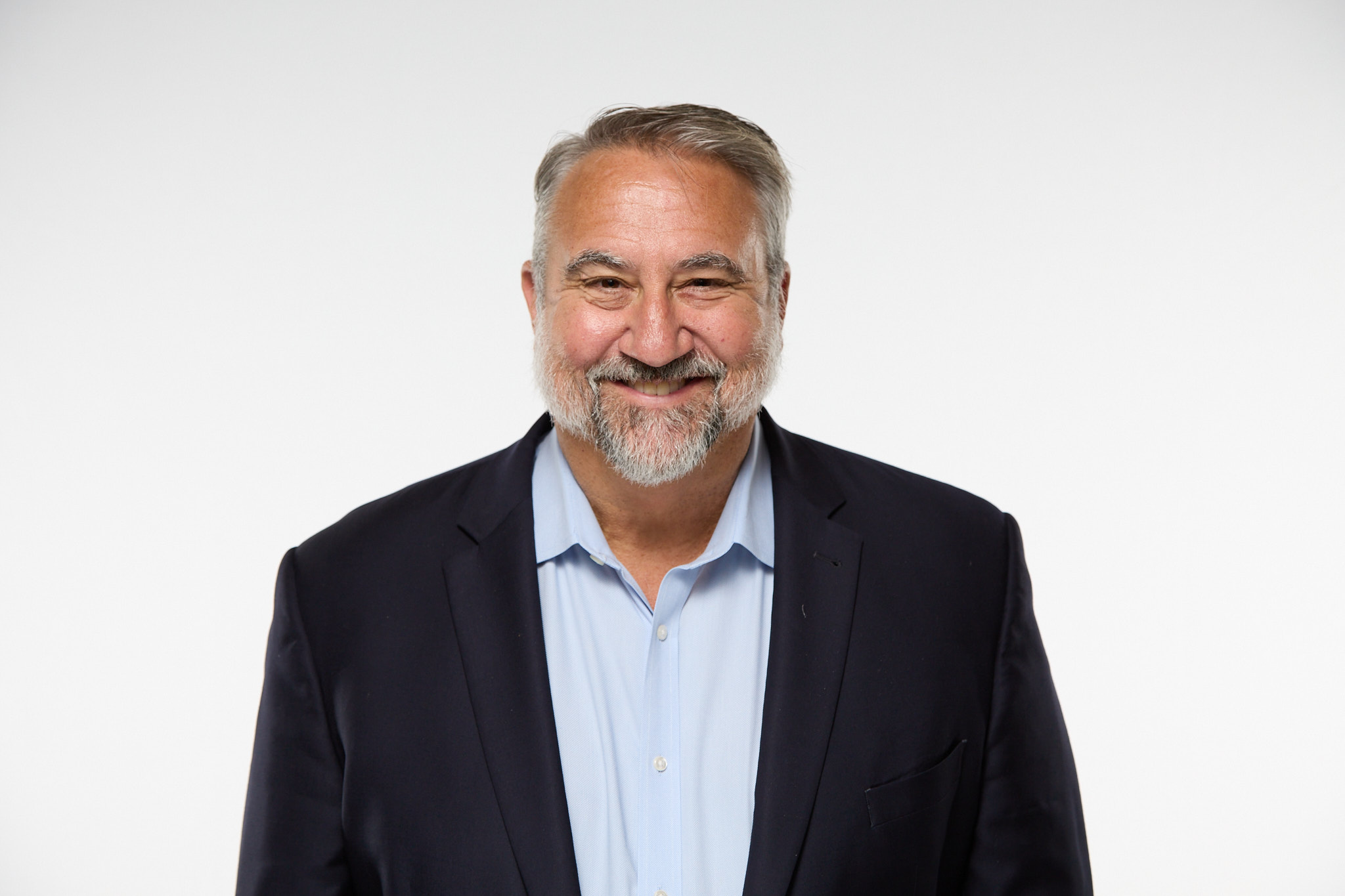
CEO
Michael Ratigan is the founder and president and CEO of Data Evolution which provides subject matter expertise and consulting to Federal agencies and private sector companies to accelerate digital transformation, document digitization, record management, robotic process automation, data management, information governance and compliance. Michael has worked with Federal Agencies and private sector companies for over 35 years managing the onsite and offsite conversion of over three billion documents spanning two hundred customers including public sector, DoD, and Intel agencies. He is an expert in all aspects of federal paper to cloud transformation, digitization, electronic records management, FOIA, artificial intelligence, machine learning, natural language processing, and cloud-based solutions using a variety of public, private and secure gov clouds. Michael is also a frequent speaker at industry events, moderator for Federal executive panels, podcasts and a strategic advisor to numerous companies working within the Federal market. Michael serves a consultant to ARMA, Carahsoft and a host of industry leading vendors.
